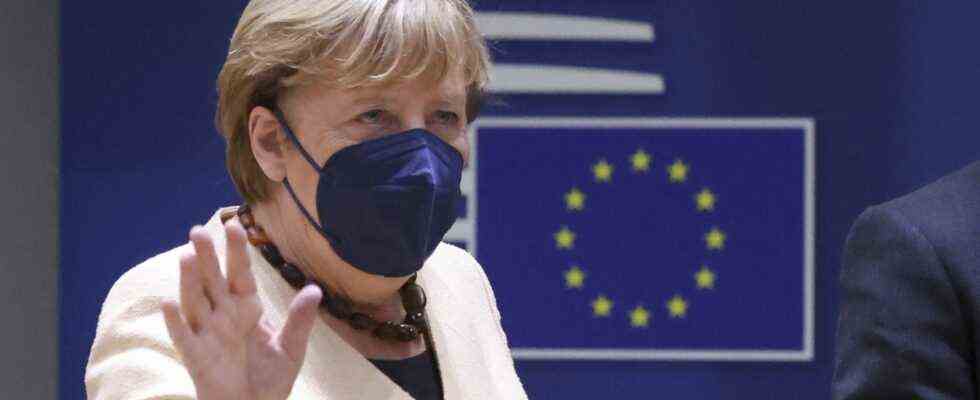Status: October 21, 2021 5:51 p.m.
The dispute over the rule of law in Poland overshadows Chancellor Merkel’s possibly last EU summit. Some countries are pressing for a tough line against Warsaw. Merkel and other states rely on dialogue.
Angela Merkel’s probably last EU summit will not be a harmonious event, and the Chancellor and the other heads of state and government will not have much time to celebrate. They discuss the latest escalation in the long-standing dispute over Poland’s judiciary. “We are ready for dialogue,” said Prime Minister Mateusz Morawiecki at the beginning. But:
We will not act under the pressure of blackmail. We do not agree that the EU is constantly expanding its competencies, but we will of course speak amicably about a solution to the current disputes.
Hungary’s Prime Minister Viktor Orban is campaigning for the government in Warsaw – as is so often the case. The Poles are right, he stresses.
In those areas where we have not delegated powers to the EU institutions to create rules, national law takes precedence. No question.
However, the dispute is not about individual competencies, but about the fundamental question of whether EU law takes precedence over national law-making. Poland’s constitutional court has declared articles of the EU treaties incompatible with its own constitution. As a result, the EU Commission and many member states see basic values at risk: separation of powers, independence of the judiciary, and legal security for all EU citizens. Chancellor Merkel still wants to stay in talks with Warsaw:
The rule of law is at the core of the European Union. On the other hand, we have to find ways and possibilities to come together again here, because a cascade of legal disputes before the European Court of Justice is not yet a solution for how the rule of law can be lived.
Countries like Austria, Luxembourg or Belgium, on the other hand, are demanding a tough course. Dutch Prime Minister Mark Rutte is also blatantly threatening to withhold money for reconstruction after the pandemic:
It is very difficult to imagine that a large new fund will be made available to Poland until this is resolved.
Warsaw expects a total of 36 billion euros from the Corona fund, including 24 billion in grants, but the EU Commission has not yet approved the Polish development plan. In addition, the other member states must agree to the payout.
Energy prices another controversial topic
Also controversial at the summit: the reaction to rising energy prices. The heads of state and government agree that poor households and small businesses should be helped quickly. In addition, some countries are calling for more extensive measures: creating joint gas supplies, buying natural gas together, decoupling the electricity price from the gas price. Spain’s Prime Minister Pedro Sanchez explains:
Chancellor Merkel demands to react prudently, not to switch off the market completely and, if necessary, to provide social support, as is the case with housing benefits in Germany. Tomorrow the summit will discuss the increasing number of refugees entering the EU via Belarus. Merkel accuses ruler Alexander Lukashenko of state-organized human trafficking, she has brought further sanctions against Minsk into discussion.
Merkel’s last EU summit: dispute over Poland’s judiciary and energy prices
Jakob Mayr, ARD Brussels, October 21, 2021 5:15 p.m.

